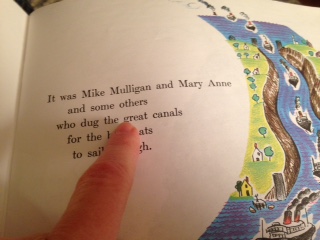Choosing a reading program for a child with learning challenges

By Kathy Kuhl
Some kids learn to read as Mom or Dad’s finger slides along below the words of their picture books. Some will learn with any good reading program. Others, like one of mine, need a program based on Sam Orton and Anna Gillingham’s methods (“Orton-Gillingham,” aka Multisensory Structured Language, or MSL). And some need to be tutored by someone with years of specific training in teaching dyslexics.
I’m often asked for help choosing a reading program, and I wrote a long chapter about this in Homeschooling Your Struggling Learner. Here I share a few highlights.

The International Dyslexia Association (IDA) has some good articles on understanding different kinds of reading programs. They warn us to beware: anyone can say their approach in “multisensory” or “Orton-Gillingham-based” or “brain-based.”
Unlike the vague claims of some websites, the IDA thoughtfully evaluates some reading programs and recommends a few. (Note: between writing and posting this article, IDA has taken down the list, probably to update it. So if that link doesn’t work it is still available here. I am not endorsing this other site, just the IDA publication there.) Their list is not complete, and I know they are working with at least one program to help it meet their criteria for MSL.
Lots of helpful Fact Sheets from IDA are here. I’m happy to see their position paper on homeschooling. Some in IDA in my areas are promoting homeschooling and collaborating with local homeschoolers.
Here’s why I can’t tell you exactly what you need to help your child learn to read: it depends on your child’s needs. Some kids respond well to basic phonics instruction, others need more explicit MSL instruction, for example, Reading Reflex or Barton at home, or Logic of English or All About Reading. (Barton offers videos to teach parents how to teach.) But teaching can be an art, and other kids need one-on-one instruction with a tutor who has received special training, a fully certified Wilson tutor* (not just one who has had a weekend of Wilson training) or other reading specialist.
But some of us have kids who need even more. They need one-on-one help from someone with more training specifically in working with dyslexics, someone who has also been mentored in the craft of teaching reading to people with dyslexia.
An excellent option for DC, MD, and VA homeschoolers is the Atlantic Seaboard Dyslexia Education Center in Rockville. ASDEC is an excellent place to get training in teaching students with language based learning disabilities like dyslexia and dysgraphia.
Don’t live near Washington, D.C. ? ASDEC is one of many training centers certified by the International Mulitsensory Structured Language Education Council (IMSLEC) to train people as “Certified Academic Language Therapists,” or academic therapists. These academic therapists have the equivalent of a masters degree in coursework in teaching reading to dyslexics. In addition, academic therapists have to complete 100 hours of supervised practice teaching to be certified.
Another accrediting organization is the Academy of Orton-Gillingham Practitioners and Educators.
On both sites, you can search by state to find a training center near you. Then contact the centers to ask for recommendations for an academic therapist or Orton-Gillingham practitioner.
Or get trained yourself. I know several homeschool parents who have trained as academic therapists. It could become your next career, enabling you to help many people.
Another way to find an academic therapist is through their professional organization, Academic Language Therapy Association. There is a member directory here. But because not all academic therapists want to be listed online, there are directions for finding more therapists, as well.
If you have experience with academic therapists or other programs mentioned above, tell us about them, please, in the comments section, below.
*** Footnote
*A Wilson tutor told me that for a child with difficulties with reading comprehension, if you use a Wilson tutor, to be sure your tutor has completed their Level II training.

